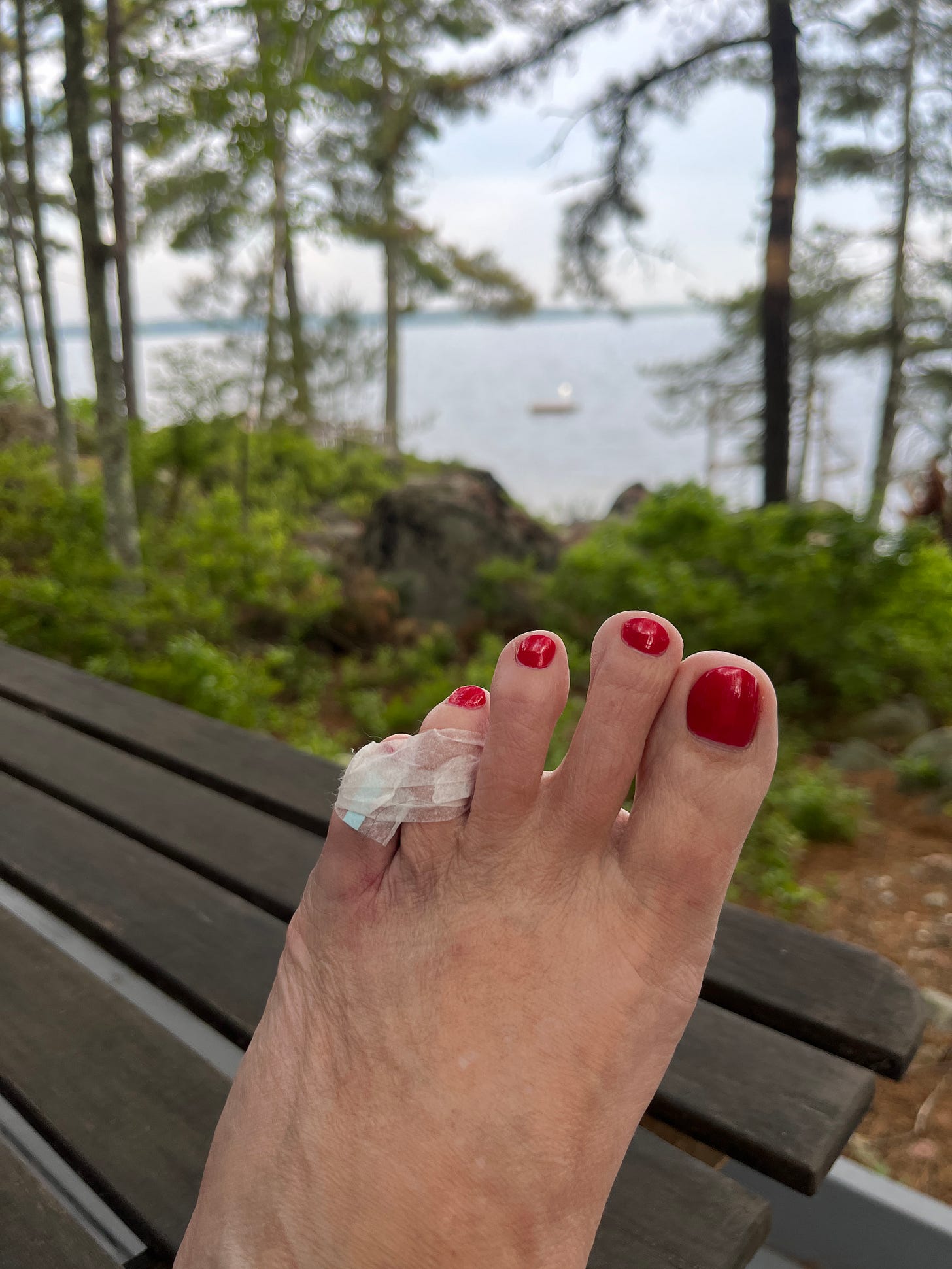How do you recharge when you're in charge?
In the weeks since Annie died, I have tried to maintain my regular, somewhat light, schedule. I had classes until May 8th and two days later, a hysterectomy after which I was required to lay low and rest and heal. I was also planning a celebration of life for Annie, but it wasn’t too strenuous because I had a crew of competent and caring women—all friends of Annie—to take on the heavy lifting. I felt like I was okay. My physical healing was great—little pain or discomfort and just the other day I was cleared for regular activities. But I may have overlooked the emotional healing. Exhibit A—the podcast I did a couple of weeks ago. My podcasts are usually me reading a past essay, but that one was me confessing that the one I thought I had planned in advance was one I had already done.
That should've been my first sign. I owned up to messing up some things due to the strain of death, cancer, surgery, new medications, grief, loss…I mean, it makes sense. Of course I messed up. But I guess I subconsciously also felt like this healing—physical and emotional—would take some sort of reasonable trajectory. I would get better.
The day we planned for Annie was wonderful, but of course the unspoken feeling on most people’s minds was that the only way it could have been better was if she had been there. The next day the family gathered at her house to be together before we went our separate ways for a bit--Angelo and I decided to head back to Maine for a few days. Tony was headed back to work and his parents were taking Luca to Camp Nonna and Papa for a week in Buffalo. I decided to refill the hummingbird feeder for the birds who would no doubt be looking for us while we were gone and you’d think I was trying to attempt something a lot more complicated than putting sugar in water. I spilled the nectar, I knocked over a plant stand, I walked back and forth across the patio a dozen times trying to organize my thoughts about where to hang the feeder.
The next day was no better: I only had a couple of things to do but I had to write them down. Like teach my class and babysit my granddaughter. Something was up…my brain felt mushy and my thoughts were flitting around like lightning bugs. We were taking care of Charlie the dog and bringing her up to Maine with us. On her last outing of the night before we left, she was tangled up in the garden, so I had to carefully climb up the low stone wall next to the azalea bush above the hostas, grab the lead and guide her back down. That’s when I fell right on my ass.
I was fine…more ego was bruised than flesh or bone. And we were headed to Maine the next day…ahhh…days of relaxation which I apparently needed. And when we arrived I told myself that all I was going to do to open up the cottage was sweep up a little, open up the windows and put out some of the fresh flowers we brought with us from Annie’s celebration. Simple. And then I simply walked across the living room, slammed my foot into my computer bag and broke my toe.
When you're a person who manages things . . . families, households, self-employment, etc. how do you stop doing those things so you can recharge? I guess you fall down, forget things, have trouble with simple math, or break something. Even when our bodies are telling us to slow down, we insist on responding to them that we are. I think this especially goes for grieving. Grief isn’t a logical trajectory—it isn’t logical at all. I might not get “better” but things might be different. And trying to recharge is going to look different, too. I think the first thing I need to do is realize that. I might need to take a minute.
I might need to take all of them.



Cindy, you may already know, but I’ll share that what’s happening on a physiological level with grief, is a mild level of brain injury. It’s temporary, but nevertheless, it’s shows up on an MRI after a traumatic loss. The Prefontal Cortex (thinking center), is underactive. The Anterior Cingulate Cortex (emotional regulation center of the brain) is also underactive. The Amygdala (fear center), is overactive. Be incredibly patient, careful and also forgiving of yourself. Your beautiful brain is working to help heal what is “non-recoverable”. In time, you will self-regulate into a more recognizable version of the person you were. I love that you are breathing and writing through this in a way that will reach so many and provide hope and comfort.
A broken toe makes you go slow. It helps you in ways that you'll never know.
Listen to what the universe is trying to tell you. Just put one foot in front of the other (without banging it into something) and do whatever makes you feel a bit better. As you know, there are no rules
or guides to follow, so don't be hard on yourself; be easy on yourself. Sighing a lot helps, too. xoxoxo